




dad
 n.
爸爸
n.
爸爸
daily
 a.
每日的
ad.
每天
n.
日报
a.
每日的
ad.
每天
n.
日报
详解 daily 的形容词和副词的用例如下:
It's a daily paper. 这是一份日报。
It comes out daily. 报纸每日发行。
damp a. 潮湿的;有湿气的 n. 潮湿;湿气 v. 使潮湿;弄湿;控制;抑制
dance
 v./n.
跳舞;舞蹈
v./n.
跳舞;舞蹈
danger n. 危险;威胁;危险物
dangerous a. 危险的;不安全的
例句 Dangerous road condition ahead, please drive carefully. 前面路况危险,请小心驾驶。

dare aux./v. 敢;竟敢;敢于;敢于面对
dark
 a.
暗的;黑暗的;深色的;暗色的
n.
黑暗;暗处;黑夜;黄昏
a.
暗的;黑暗的;深色的;暗色的
n.
黑暗;暗处;黑夜;黄昏
darling n. 心爱的人,亲爱的人 a. 心爱的,可爱的
data n. 资料;材料;数据
例句 Before Jack reported to his boss, he prepared all the data. 杰克向老板报告工作之前,准备好了各项数据。
Boss: That's ok, please no more. 老板:很好,求求你,别再说了。

database n. 数据库;资料库
date
 n.
日期;时期
v.
约会;确定……的日期
n.
日期;时期
v.
约会;确定……的日期
daughter
 n.
女儿
n.
女儿
day
 n.
日光;白天,白昼
n.
日光;白天,白昼
dead
 a.
死的,无生命的;无感觉的;麻木的
a.
死的,无生命的;无感觉的;麻木的
deal v. 分配;发牌;交易;处理;论述;涉及;经营;做买卖 n. 数量;买卖;交易
详解 a great deal of和a large amount of 意为“许多”,后面要跟不可数名词。例如:
Jack has spent a great deal of time in the Far East. 杰克在远东待了很长一段时间。
dear a. 亲爱的;珍贵的;宝贵的;昂贵的 n. 亲爱的人;可爱的人
death
 n.
死;死亡;消灭;破灭
n.
死;死亡;消灭;破灭
debate v. 争论;讨论 n. 争论;辩论
例句 Whenever Jack debates with his colleagues, it's always the secretary who steps in and separates them. 每当杰克和他的同事辩论时,总是秘书出来把他们分开。

|

|
December
 n.
十二月(略作Dec.)
n.
十二月(略作Dec.)
decide v. 决定;决心
例句 Sprite was a little boy's name in one of Coca-Cola's advertisements. Before exporting to China, the word“sprite”means elf or monster in Chinese, they decided to use Xuebi as the trademark, which was similar to the English sound, and it was a total success. Sprite 原本是可口可乐公司广告上一个小男孩的名字,在出口中国前,考虑到sprite 在汉语中是“怪物”的意思,于是就用音译“雪碧”来做商标,结果大获成功。

declare
 v.
宣告;宣布;声明;宣称;断言;申报
v.
宣告;宣布;声明;宣称;断言;申报
deep
 a.
深的;位于深处的;(感情)深厚的;深切的
ad.
深深地
a.
深的;位于深处的;(感情)深厚的;深切的
ad.
深深地
degree
 n.
度;度数;学位
n.
度;度数;学位
例句 If I can use some instruments to calculate the degree of α, then I can calculate the value of r. 如果我用仪器测量出角度α,就可以算出r的值。
例句 When kids' temperature reaches 39 degrees, they won’t feel anything. 小孩子体温达到39度,他们都觉得没事。
例句 Jack's degree is the highest among his friends. 三个朋友中,杰克的学位是最高的。

delay
 v.
延迟;推迟;耽误
v.
延迟;推迟;耽误
delicious
 a.
非常好吃的;美味的;可口的
a.
非常好吃的;美味的;可口的
deliver
 v.
投递;传递;运送
v.
投递;传递;运送

例句 Jack, I want you to deliver the important documents to me by EMS. 杰克,希望你把重要文件通过EMS寄过来给我。
dentist n. 牙医
depart
 v.
出发;离开;背离;违反
v.
出发;离开;背离;违反
例句 The plane departed on time this morning, it is due to arrive at noon. 飞机早晨准点起飞了,预计今天中午就会到达。

departure n. 离开;出发;启程;背离;违反
depend
 v.
依靠;信任
v.
依靠;信任
详解 depend或者dependent 后用介词on。例如:
We may play football,it depends on the weather. 我们可能会踢足球,这得看天气。
He doesn't want to be dependent on his parents. 他不想依赖他的父母。
depth
 n.
深度;纵深;深厚;深刻
n.
深度;纵深;深厚;深刻
describe
 v.
描写;描绘;形容
v.
描写;描绘;形容
例句 The novel describes Jack as a fool; it is exactly opposite to what he really is. 小说把杰克描写成一个傻瓜,其实这与真实的杰克完全相反。

|

|
description n. 描写;描述;形容;种类
desert n. 荒芜;荒地;沙漠
desert v. 离弃;丢弃;开小差;逃亡
design
 v./n.
设计;计划;构思
v./n.
设计;计划;构思
designer n. 设计者
例句 This building's designer forgot to plan the elevator. 这幢楼的设计者忘记了设计电梯。

desk n. 书桌;课桌;办公桌
determine
 v.
下决心;决意;决定;判决
v.
下决心;决意;决定;判决
develop
 v.
开发;发展
v.
开发;发展
development n. 生长;发育;研制;培育;发展的结果;产物;事态的发展;新情况
diagram n. 图形;图解;图表;简图
例句 It is too hard to understand, it would be easier if we have a diagram. 这内容实在太难了,如果有个图就更容易懂了。

dialog(ue)
 n.
对白;对话
n.
对白;对话
diary
 n.
日记;日记簿
n.
日记;日记簿
dictionary
 n.
字典,词典
n.
字典,词典
did
 v.
do 的过去式
v.
do 的过去式
die
 v.
死亡;凋零
v.
死亡;凋零
differ v. 不同;相异;(在意见方面)发生分歧;意见不同
difference
 n.
差别;不同;差异;分歧,不同的意见
n.
差别;不同;差异;分歧,不同的意见
different
 a.
不同的;与……不一样的;差异的;各种的
a.
不同的;与……不一样的;差异的;各种的
详解 different 后一般加from,英国人也常用to,例如:
American football is very different from/to soccer. 橄榄球和足球很不一样。
difficult
 a.
困难的;艰难的
a.
困难的;艰难的
difficulty
 n.
困难;难事;费劲;困境
n.
困难;难事;费劲;困境
digital a. 数字的;数字显示的
例句 Nowadays we live in a digital society. 如今我们生活在数字化社会。

dinner n. 正餐;宴会
详解 关于dinner,美国人和英国人的理解不一样。英国人说dinner 是指中午吃的那顿饭,尤其是如果把它当作一天中最重要的那顿饭,而上流社会一般会说lunch。
例句 It's time to have dinner! 该吃饭了!
Don't disturb me ! 别烦我了。

direct
 v.
指引;指导;指向;导引
v.
指引;指导;指向;导引
direction
 n.
方向;方位;指导;指挥;用法说明
n.
方向;方位;指导;指挥;用法说明
例句 Jack says he wants to find a gentle person to ask for directions. 杰克说他希望能找到一位和善的人问路。

director
 n.
主管;主任;导演;理事
n.
主管;主任;导演;理事
disagree v. 意见不同;不符合;不一致
disappear v. 不见;失踪;消失;消散
例句 The remote-controlled plane flew out of control and disappeared for some unknown reasons. 遥控飞机不知为何原因失控不见了。

disappoint v. 使失望;失信于;使受挫折;使落空
详解 对某人很失望需用with。例如:
My father never showed if he was disappointed with me. 我爸爸从来没有表示出对我是否失望过。
对某些事失望时可以用at/about/with。例如:
You must be pretty disappointed with/at/about your exam result. 你一定对你的考试结果很失望。
disastrous a. 灾难性的;悲惨的
例句 A meteor fell on earth. Some say it will bring good fortune to us, while others say it is disastrous. 陨石落在地球上。有人说它会给我们带来好运;也有人说它会给我们带来灾难。

discover
 v.
发现;发觉;暴露
v.
发现;发觉;暴露
discovery
 n.
发现;被发现的事物
n.
发现;被发现的事物
discuss
 v.
讨论;商议;谈论
v.
讨论;商议;谈论
详解 discuss后一般直接跟宾语而不加介词。例如:
We must discuss your plans. 我们必须讨论一下你的计划。
例句 Doctor A: Let's discuss why there are so many sick people right now. 医生A:我们来讨论一下为什么现在有那么多病人。
Doctor B: Maybe it's because they eat unclean food... 医生B :也许是因为他们吃了不干净的食物……

discussion
 n.
讨论;商议;议论
n.
讨论;商议;议论
disease
 n.
疾病
n.
疾病
dish
 n.
盘子;餐具
n.
盘子;餐具
display
 n.
展览;陈列;展览品;显示器
n.
展览;陈列;展览品;显示器
distinguish v. 区分;辨别;分清;认出

例句 Can you distinguish who has the nose job? 您能看出谁做过鼻子整形手术吗?
dive
 v./n.
跳水;潜水;俯冲
v./n.
跳水;潜水;俯冲
例句 For Jack, diving is a torture. 对杰克来说,跳水就是一种折磨。

divide
 n.
分;分开;分隔;分配;分担;分歧
n.
分;分开;分隔;分配;分担;分歧
详解 divide 后加 into 表示“分为……”。例如:
The book is divided into three parts. 这本书可以分为3部分。
division
 n.
分割;分配;分开
n.
分割;分配;分开
dizzy a. 头晕的;昏乱的
例句 For some reason, Jack feels dizzy when he is sitting in the car, but he will be ok when driving it. 不知为何原因,杰克开车不晕,坐车晕。

do
 aux./v.
做;干;行动;进展;学习;研究
aux./v.
做;干;行动;进展;学习;研究
详解 我们可以用do来表示强调。例如:
Do sit down. 快请坐下。
Do be more careful. 一定要更小心些。
dock n. 码头
doctor
 n.
医生;医师;大夫;博士
n.
医生;医师;大夫;博士
document
 n.
文件;证件
v.
用文件证明;记载
n.
文件;证件
v.
用文件证明;记载
dog
 n.
狗;犬
n.
狗;犬
dollar
 n.
美元
n.
美元
done
 v.
do 的过去分词
v.
do 的过去分词
donkey
 n.
驴
n.
驴
例句 In America, Donkey usually refers to Democratic Party; while Elephant usually refers to Republican Party. 在美国,驴党常指民主党,象党常指共和党。

door
 n.
门;户出入口
n.
门;户出入口
dot n. 小圆点 v. 在……上打点;点缀
double
 a.
两倍的,加倍的;双的;双重的;双人的;供两者使用的
v.
使加倍;重复
a.
两倍的,加倍的;双的;双重的;双人的;供两者使用的
v.
使加倍;重复
doubt
 v./n.
怀疑;不可信
v./n.
怀疑;不可信
详解 no doubt 的意思是大概,个人认为但并不肯定。例如:
No doubt it'll rain soon. 我觉得一会儿会下雨。
You're tired, no doubt. I'll make you a cup of tea. 你应该很累了,我来给你沏杯茶。
如果表示肯定,我们用no doubt that, without any doubt, certainly, definitely 等。
down
 ad.
向下;向楼下;在下面;在低处;由强到弱;由高到低;由大到小;倒下;躺下;坐下
prep.
沿着……往下;在……下游
a.
向下的;下行的;情绪低落的
ad.
向下;向楼下;在下面;在低处;由强到弱;由高到低;由大到小;倒下;躺下;坐下
prep.
沿着……往下;在……下游
a.
向下的;下行的;情绪低落的
dozen
 n.
一打;十二个
n.
一打;十二个
dramatic a. 戏剧的;剧本的;戏剧性的;激动人心的
例句 Jack is a character in the play, but in real life we can also see this kind of dramatic people. 杰克是戏剧中的人物,但在现实生活中,也有这样戏剧性的人。

drank v. drink 的过去式
draught v. 草稿;草图;草案;汇票
draw
 v.
画;描绘;拉;拖;拖长;拔出;抽出;吸引;引出
n.
平局
v.
画;描绘;拉;拖;拖长;拔出;抽出;吸引;引出
n.
平局
drawer n. 抽屉;开票人
drawn
 v.
draw 的过去分词
v.
draw 的过去分词
dream
 v./n.
梦;梦想;理想
v./n.
梦;梦想;理想
dreamt v. dream 的过去式或过去分词
dress
 v.
穿衣;着装
v.
穿衣;着装
详解 dress可以用来描述给自己或者别人穿衣服,undress 是脱衣服。例如:
It only takes me five minutes to dress in the morning. 我早上只用了5分钟来穿衣服。
Could you dress the children for me? 你能帮我给孩子们穿衣服吗?
drink
 v.
喝;饮
n.
饮料;酒
v.
喝;饮
n.
饮料;酒

例句 Waiter: What would you like to drink?
店员:想喝点儿什么?
Customer A: A cup of ice water, please.
顾客A:一杯冰水。
Customer B: A cup of coffee, please.
顾客B:一杯咖啡。
Robot: A cup of oil, please.
机器人:一杯油。
drip
 v.
(液体)滴下;滴出;充满;充溢
v.
(液体)滴下;滴出;充满;充溢
drive
 v.
驾驶
v.
驾驶
详解 如果说开车撞到……,应该是drive into…,而不是drive against。例如:
Granny drove into a tree again yesterday. 奶奶昨天开车又撞到树了。
drop
 n.
点滴;滴;下降;落下;微量
v.
落下;掉下;(使)降低;放弃;停止
n.
点滴;滴;下降;落下;微量
v.
落下;掉下;(使)降低;放弃;停止
drug n. 药品;毒品;药物;药剂
drunk
 a.
喝醉的;陶醉的
v.
drink 的过去分词
a.
喝醉的;陶醉的
v.
drink 的过去分词
dry
 a.
干燥的;口干的
v.
(使)变干
a.
干燥的;口干的
v.
(使)变干
duck
 n.
鸭子;鸭肉
n.
鸭子;鸭肉
due a. 应给的;应得的;恰当的;应支付的
during prep. 在……的期间
例句 Rose was Jack's girlfriend during college. But after working, Rose was Jack's colleague. Now Rose is Jack's manager. 上大学期间,罗斯是杰克的女朋友。工作后他们是同事。现在罗斯是杰克的经理。

dust n. 灰尘;尘土;尘埃 v. 掸去灰尘;扫掉尘土
dustbin n. 垃圾箱
duty n. 职责;义务,责任;税;关税
each
 pron.
各自;每个
a./ad.
各自的(地);各个的(地)
pron.
各自;每个
a./ad.
各自的(地);各个的(地)
详解 each可以描述两个或者更多,every 描述三者或三者以上。后跟单数名词。例如:
The compary makes less money each/every year. 公司的盈利每况愈下。
She held a child on each hand. 她一只手抱着一个小孩。
eager
 a.
渴望的;期盼的
a.
渴望的;期盼的
例句 My younger sister hates being young, she eagers to grow up soon. My younger brother doesn't like school very much, he eagers for a holiday. My older sister is tired of being single, she eagers to marry someone. 妹妹怨自己太小,渴望早点儿长大;弟弟非常不爱上学,渴望放假;姐姐厌烦了单身,渴望嫁人。
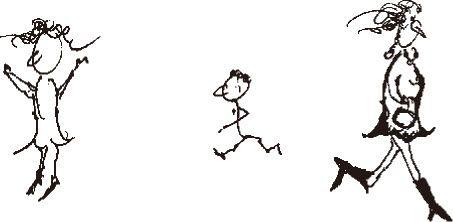
eagle n. 鹰
ear
 n.
耳朵;听力;听觉
n.
耳朵;听力;听觉
earth
 n.
地球;陆地;大地;土;泥土
n.
地球;陆地;大地;土;泥土
earthquake
 n.
地震
n.
地震
例句 Jack slept in an RV (receational vehicle) last night. When he woke up in the morning, he didn’t see any building without damage. He felt nothing about last night's earthquake. 杰克昨天晚上在房车里度过了一夜。早晨醒来,他看到城镇几乎没有一处完好的房屋。昨晚的地震他一点儿感觉都没有。
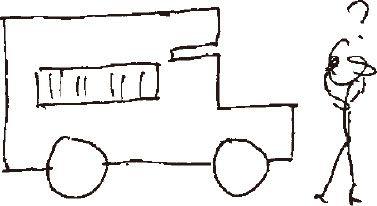
|
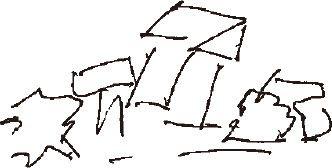
|
easy
 a.
容易的;不费力的;安逸的;舒适的
ad.
容易地;舒适地
a.
容易的;不费力的;安逸的;舒适的
ad.
容易地;舒适地
eat
 v.
吃;喝;吃饭
v.
吃;喝;吃饭
eaten
 v.
eat 的过去分词
v.
eat 的过去分词
economic
 a.
经济的;经济学的
a.
经济的;经济学的
例句 Jack is an economic professor, but nobody is interested in his lecture. 杰克是经济学教授,但没人对他的课程感兴趣。

economy n. 经济;经济制度;经济情况;节省;节约
edge n. 刀口;锋刃;边;边缘;棱 v. 侧身移动;挤进
edit v. 编辑;校对;剪辑
edition n. 版本;版次
editor n. 编辑;编者
educate v. 教育;培养;训练
详解 bring up和upbringing 一般用来指孩子们在家里受到的教育。
educate 和education 则指人们在学校或者大学里受到的教育。例如:
Rose was brought up by her aunt and educated at the local school. 罗斯小时候是被她婶婶带大的,后来她在当地学校接受教育。
education
 n.
教育;培养;训练
n.
教育;培养;训练
effect
 n.
效率;功效;效能;影响;印象
n.
效率;功效;效能;影响;印象
egg
 n.
卵;蛋
n.
卵;蛋
eight
 num.
八;八个
num.
八;八个
eighteen
 num.
十八;十八个
num.
十八;十八个
eighth
 num.
第八;第八个;八分之一
num.
第八;第八个;八分之一
eighty
 num.
八十;八十个
num.
八十;八十个
either
 a.
(两者之中)任一的;每一的
pron.
(两者之中)任何一个;各方
ad.
(同否定词连用)也(不);而且……(不)
a.
(两者之中)任一的;每一的
pron.
(两者之中)任何一个;各方
ad.
(同否定词连用)也(不);而且……(不)
elder a. 年龄较大的;年长的 n. 年长者;长辈
election n. 选择;推举
electric
 a.
与电有关的;带电的
a.
与电有关的;带电的
详解 electric 一般与一些与电相关的名词连在一起。例如:
an electric motor 一台电动机
an electric shock 一次电击
an electric atomosphere 火光四射的气氛
electrical 则用在更一般性的词前。例如:
electrical appliances 电器用品
electrical equipment 电气设备
electricity n. 电;电力;电子
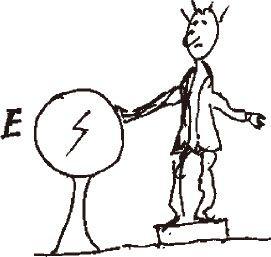
例句 If you have enough static electricity, your hair will stand straight from your head. 如果你身上带有足够的静电,头发就会竖起来。
electronic a. 电子的;电子操纵的
element
 n.
元素;要素;成分
n.
元素;要素;成分
elephant
 n.
大象
n.
大象
例句 The fairy tale tells us that the elephant fears the rat,because the rat will climb into its trunk. 童话故事里说大象害怕老鼠,因为老鼠会钻进大象的鼻子里。
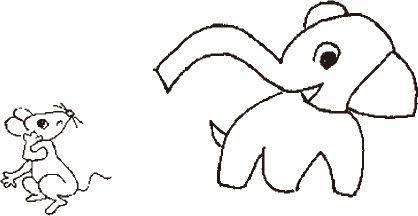
elevator n. 电梯;升降梯
eleven
 num.
第十一;第十一个
num.
第十一;第十一个
else
 ad.
其他;另外
ad.
其他;另外
Email n. 电子邮件
embark v. 登机;上船;从事;着手
embassy
 n.
大使馆;大使馆全体成员
n.
大使馆;大使馆全体成员
emperor n. 皇帝;君主
employ v.. 雇用;使用;利用
employee
 n.
雇工;雇员;受雇者
n.
雇工;雇员;受雇者
employer
 n.
雇主;雇用者;老板
n.
雇主;雇用者;老板
例句 That fat woman is an employer; she is employing a housemaid to help her with the housework. 那位胖女人是雇主,她正雇用一位女工帮她做家务。
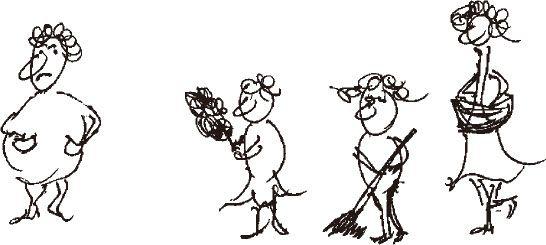
employment n. 雇用;就业;工作;职业
empty
 a.
空的
v.
使……清空
a.
空的
v.
使……清空
enable v. 使能够;使可行
encourage
 v.
鼓励;激励;怂恿;支持
v.
鼓励;激励;怂恿;支持
end
 n.
结尾;故事的结局
n.
结尾;故事的结局
详解 end 用来表示一个很重要的转折。例如:
The Second World War ended in 1945. 第二次世界大战1945年结束。
end 还可用来描述截至……。例如:
The road ended before a building site. 这条路在一个建筑工地前终止了。
endure v. 忍受;容忍;持久;持续;忍耐
例句 The person sitting beside Jack keeps sneezing, he can't endure it anymore. 坐在杰克旁边那个人不停地打喷嚏,他实在忍受不了了。

enemy n. 敌人
energy
 n.
精力;激情;能量;能源
n.
精力;激情;能量;能源
engine
 n.
发动机;引擎;机车;火车头
n.
发动机;引擎;机车;火车头
engineer
 n.
工程师;机械师
v.
设计;策划;处理
n.
工程师;机械师
v.
设计;策划;处理
engineering n. 工程;工程学
England
 n.
英格兰;英国
n.
英格兰;英国
English
 a.
英格兰的;英格兰人的;英语的
n.
英格兰人;英语
a.
英格兰的;英格兰人的;英语的
n.
英格兰人;英语
enjoy
 v.
喜爱;欣赏;享受;享有
v.
喜爱;欣赏;享受;享有
enough
 a.
充足的;足够的
ad.
足够地;充分地;相当
a.
充足的;足够的
ad.
足够地;充分地;相当
详解 enough 通常跟在形容词和副词后面。例如:
Is it warm enough for you? 这个对你来说够暖和了吗?
enter
 v.
进入;参加;加入;登录;登记
v.
进入;参加;加入;登录;登记
详解 enter into an agreement 表示达成一致,订立合约。例如:
We've just entered into an agreement with Carsons Ltd. 我们刚同Carson 公司签署了协议。
entire
 a.
整个的;全部的;纯粹的;单一的;一贯的
a.
整个的;全部的;纯粹的;单一的;一贯的
例句 Jack used his entire holiday improving his cooking, yet the children are still reluctant to touch his meal. 杰克用了整个假期提高厨艺,可是孩子们还是不愿意吃他做的饭。
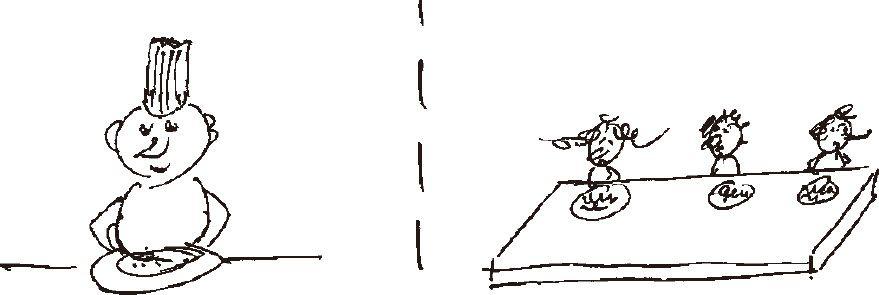
environment n. 环境;周围状况;自然环境
equal
 a.
相等的;均等的;胜任的;合适的
n.
(地位)同等的人;相等物
v.
等于;比得上;敌得过
a.
相等的;均等的;胜任的;合适的
n.
(地位)同等的人;相等物
v.
等于;比得上;敌得过
equation n. 方程式;等式
equip v. 装备;配备;使具备
error
 n.
错误;差错
n.
错误;差错
especially
 ad.
特别;尤其;格外;专门
ad.
特别;尤其;格外;专门
详解 especially 意为“尤其是”。例如:
We play a lot of tennis, especially on Sundays. 我们经常打网球,尤其是在周日。
estimate v. 评价;评估;预测
例句 Because the antique he brought in was fake,the experts estimated that it was only worth $50. 因为他带来的是赝品,所以专家们估价只值50美元。

etc. abbr. 等等
Europe
 n.
欧洲
n.
欧洲
European
 a.
欧洲的;欧洲人的
n.
欧洲人
a.
欧洲的;欧洲人的
n.
欧洲人
eve
 n.
(节日的)前夜;前夕;(大事件的)前夕
n.
(节日的)前夜;前夕;(大事件的)前夕
even
 a.
平的;平坦的;均匀的;一致的;双数的;相等的;均等的
ad.
甚至;即使
v.
(使)平坦;(使)相等
a.
平的;平坦的;均匀的;一致的;双数的;相等的;均等的
ad.
甚至;即使
v.
(使)平坦;(使)相等
详解 even 可解释为很惊讶,not even 可解释为低于预期。例如:
She's rude to everyone, even to her parents. 她对谁都很粗鲁,甚至对她的父母都是这样。
He can't even write his own name. 他甚至连自己的名字都不会写。
evening
 n.
傍晚;黄昏;晚上
n.
傍晚;黄昏;晚上
event n. 事件;大事;运动项目
例句 As a father,Jack really didn't like to play those exciting events with his son in the carnival. 作为父亲的杰克实在不喜欢在嘉年华与儿子一起玩那些刺激的项目。

eventually
 ad.
终于;最后
ad.
终于;最后
详解 eventual 和eventually 的意思是“最后”。我们用这两个词来描述经过很长时间或者付出很大努力后某些事情终于发生了。例如:
The chess game lasted for three days. Jack was the eventual winner. 国际象棋比赛持续了3天,杰克最终获胜了。
ever
 ad.
在任何时候,从来;以往任何时候,曾经;一直,总是
ad.
在任何时候,从来;以往任何时候,曾经;一直,总是
every
 a.
每一个;每一
a.
每一个;每一
everybody
 pron.
每人;人人
pron.
每人;人人
everyday
 n.
每天的;日常的
n.
每天的;日常的
everyone
 pron.
每人,人人
pron.
每人,人人
everything
 pron.
凡事,事事;一切事物;(有关的)一切
pron.
凡事,事事;一切事物;(有关的)一切
everywhere
 ad.
到处,处处
ad.
到处,处处
exam
 n.
考试;测验
n.
考试;测验
examination
 n.
检查;测验;查询;询问
n.
检查;测验;查询;询问
examine
 v.
检查;审查;考察;考试
v.
检查;审查;考察;考试
example
 n.
例证;实例;例题;模范;范例;榜样
n.
例证;实例;例题;模范;范例;榜样
excellent
 a.
出色的;杰出的;卓越的
a.
出色的;杰出的;卓越的
except
 prep.
除外;例外
prep.
除外;例外
详解 except for 一般用在名词短语前。例如:
I've cleaned the house except for the bathroom. 除了卫生间,我已经把屋子清理干净了。
例句 iPad can do everything that a phone can, except calling, if you are not using the 3G/4G version. iPad具有手机的所有功能。但如果你使用的是非3G或4G版,通话功能不能使用。

exchange
 v.
交换;互换;更换;把……换成
n.
交换;互换;更换;汇兑;兑换;兑换率
v.
交换;互换;更换;把……换成
n.
交换;互换;更换;汇兑;兑换;兑换率
例句 Can you exchange some dollars for me?
可以和你兑换一些美元吗?
Sure,You can bring me some cash tomorrow.
好的,你明天带现金来。
……
What should I do? There's 2 dollars short.
我该怎么办?少了2美元。
Today's exchange rate is lower than yesterday.
今天的汇率比昨天低了。
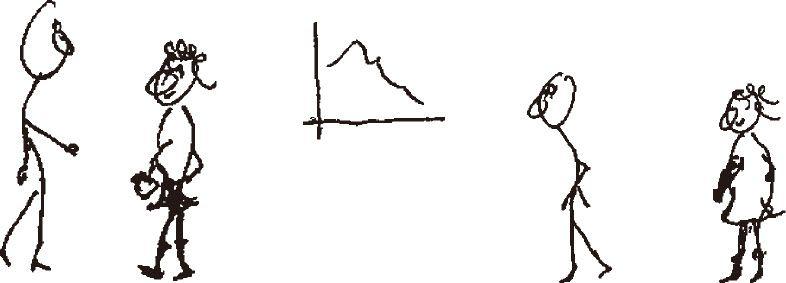
excite
 v.
刺激;兴奋;激动
v.
刺激;兴奋;激动
excuse
 v.
原谅;宽恕;免除;给……免去;为……辩解;作为开脱……的理由
v.
原谅;宽恕;免除;给……免去;为……辩解;作为开脱……的理由
excuse n. 辩解;借口;理由 v. 原谅;表示宽恕
exercise
 v./n.
锻炼;运动;训练;运用;使用
v./n.
锻炼;运动;训练;运用;使用
exhaust v. 用尽;耗尽;花光;使筋疲力尽;详尽论述 n. 排气装置;(排出的)废气
例句 Jack exhausted himself in the first 10 kilometres in the Marathon. 杰克在马拉松赛跑中,前10 千米用尽了自己所有的力气。
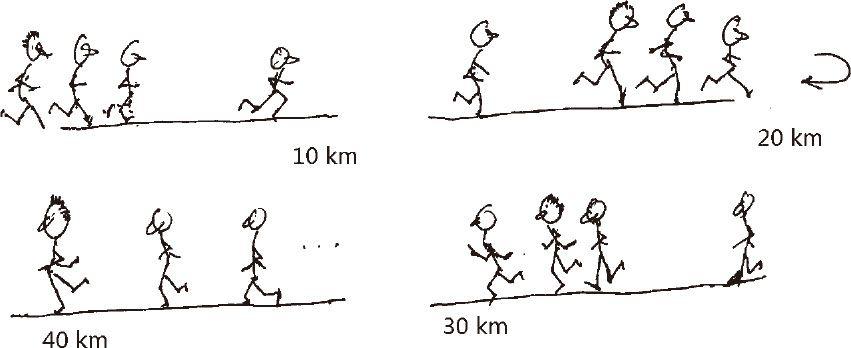
exhibit
 v.
展览;陈列;展出;显示
n.
展览品,陈列品
v.
展览;陈列;展出;显示
n.
展览品,陈列品
exit
 v.
离开;退场
n.
出口;通道
v.
离开;退场
n.
出口;通道
expansion n. 膨胀;扩张;伸展
expect
 v.
期待;预期
v.
期待;预期
详解 与hope 相比,expect 倾向于客观中性的预料,而hope 一般指某人对某事的主观好的方面的期望。例如:
I'm expecting Jack to come at three o'clock. 我想杰克会在3点来。
I hope he's got some good news. 我希望他能带给我好消息。
例句 The media expected Jack would win in the match, but the result turned out to be otherwise. 媒体预计杰克会在比赛中获胜,但结果完全相反。
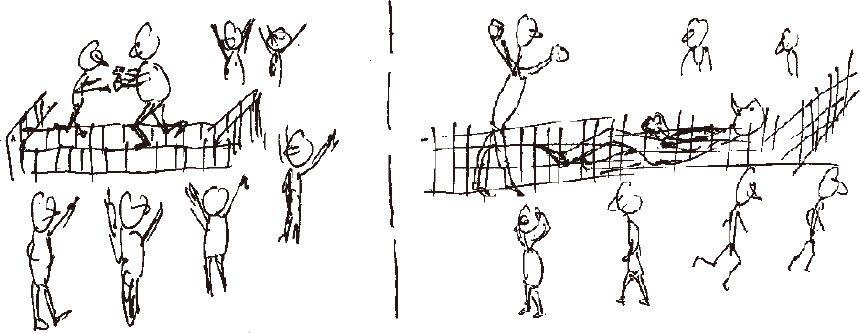
expensive
 a.
昂贵的;花钱多的;豪华的
a.
昂贵的;花钱多的;豪华的
experience
 n.
体验;经历
v.
感受;体验
n.
体验;经历
v.
感受;体验
experiment
 n.
实验;试验
v.
进行实验;做试验
n.
实验;试验
v.
进行实验;做试验
explain v. 解释;说明;辩解
详解 explain 用来表示给某人解释时,要加介词to。例如:
Could you explain this rule to me? 你能给我解释这条规则吗?
explanation n. 说明;阐述
exploit v. 利用;开采;开发;剥削 n. 业绩;功绩;功勋
express
 n.
快车;快递;专使;捷运公司
n.
快车;快递;专使;捷运公司
expression n. 表达;陈述;表露;表现;表达方式;表情
例句 The Sherriff tells everybody that they need to pay attention to each tourist's facial expression and take more photos. 警长告诉大家,他们必须注意每一位游客的面部表情,并多拍一些照片。

extend v. 延长;扩大;伸展;伸出
extensive a. 涉及方方面面的;全面的;广泛的;大规模的
extra
 a.
额外的;另收费的
n.
额外的东西;附加物
ad.
特别地
a.
额外的;另收费的
n.
额外的东西;附加物
ad.
特别地
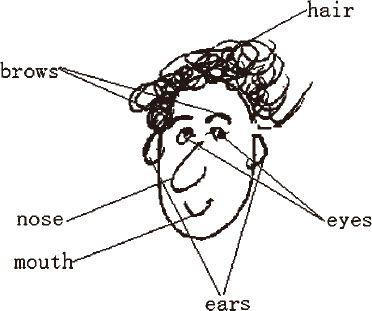
详解 extra 是一个前缀,一般加在形容词前,意思是“特别的”、“外面的”。例如:
extra-special 非常特别的
extra-terrestial 地球外的
extreme a. 尽头的;末端的;极度的;极端的 n. 极端
eye
 n.
视力;视野;眼睛
n.
视力;视野;眼睛